Results
-
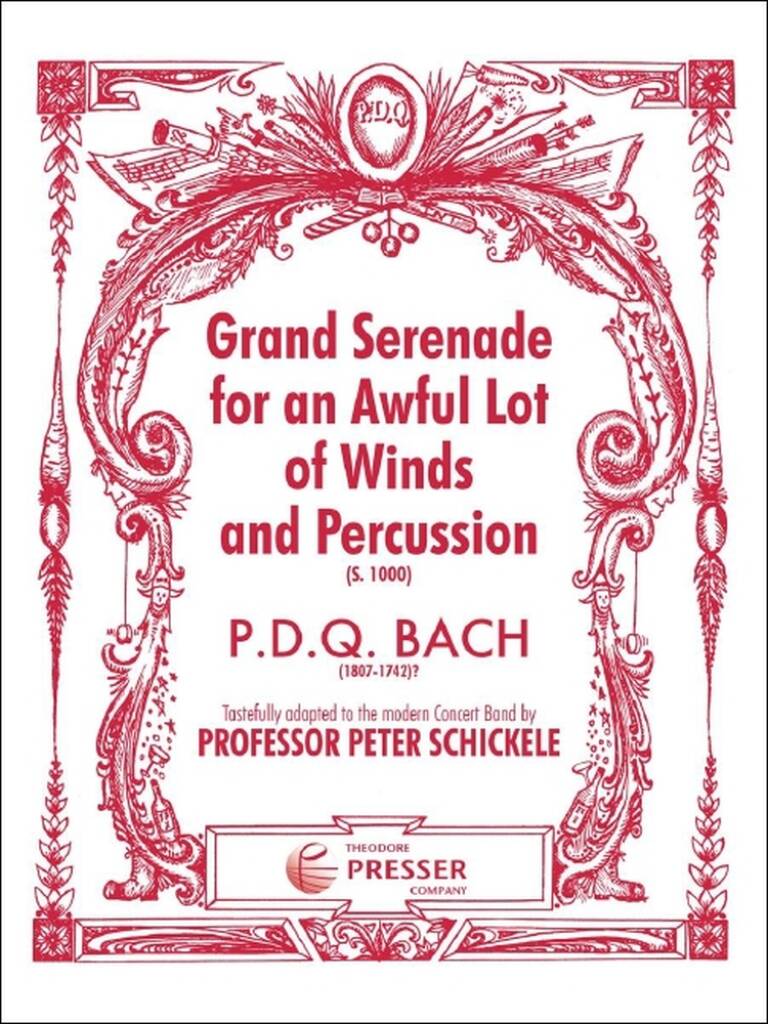 £168.50
£168.50Grand Serenade - P.D.Q. Bach
Thanks to the untiring editor Peter Schickele, who has rendered the work now playable by modern concert band, audiences can now marvel at the misbegotten meanderings offer. Bach and shake their collective heads, wondering "What was he thinking?" Trying to realize the composer's intentions is a waste of time, since he probably didn't have any. On the other hand, rehearsing the music well does seem advisable, so that when the inevitable critical backlash develops, the performing organization can justly claim that it wasn't their fault.
Estimated dispatch 7-14 working days
-
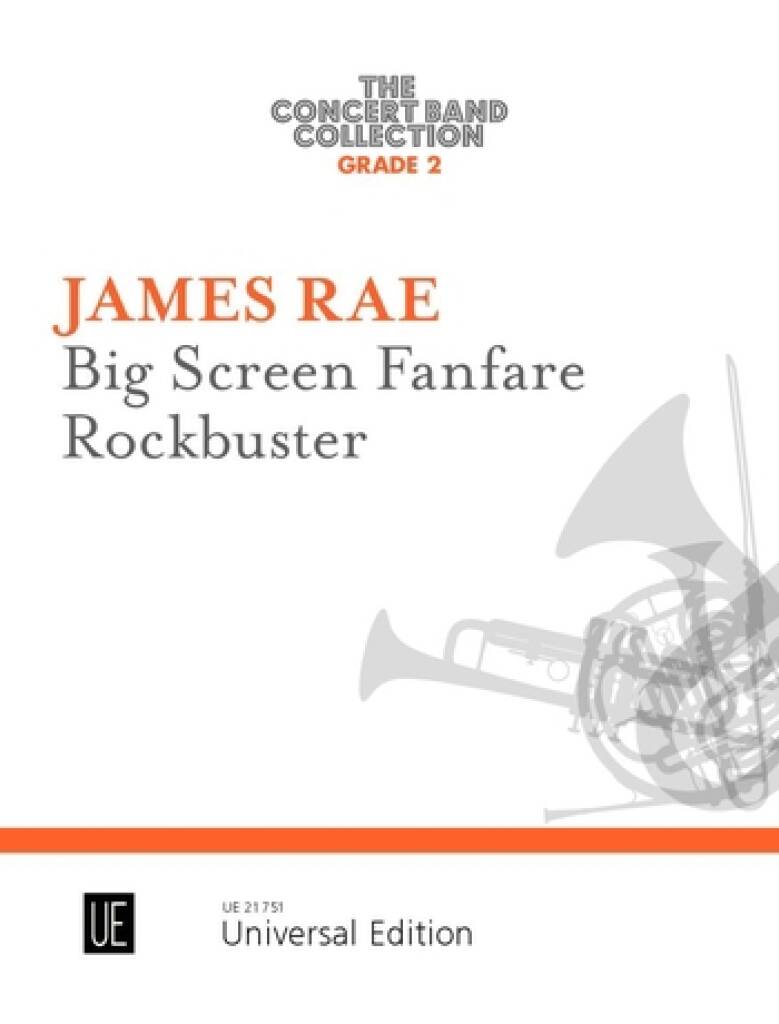 £47.50
£47.50Big Screen Fanfare ? Rockbuster - James Rae
James Rae is the man who put fun into woodwind and brass teaching. His many compositions, especially in the jazz and blues idioms, have often featured on examination syllabuses. Recent years have seen his publications of easy flexible ensembles for younger players and now he turns his attention to the wind band. In his new series "The Concert Band Collection", he has written exciting new pieces for the standard concert band line up. Attention is given to each instrument so that the technical and musical requirements do not exceed UK Grade 2.5. An optional piano part will provide "stuffing" and moral support for the young players who will quickly enjoy James' catchy and imaginative music. Each volume contains two titles.Each volume features two titles. This one includes "Big Screen Fanfare", a fanfare in the style of a Hollywood movie theme and the cool "Rockbuster". A score of this edition (without the parts) is available with the number UE21792.
Estimated dispatch 7-14 working days
-
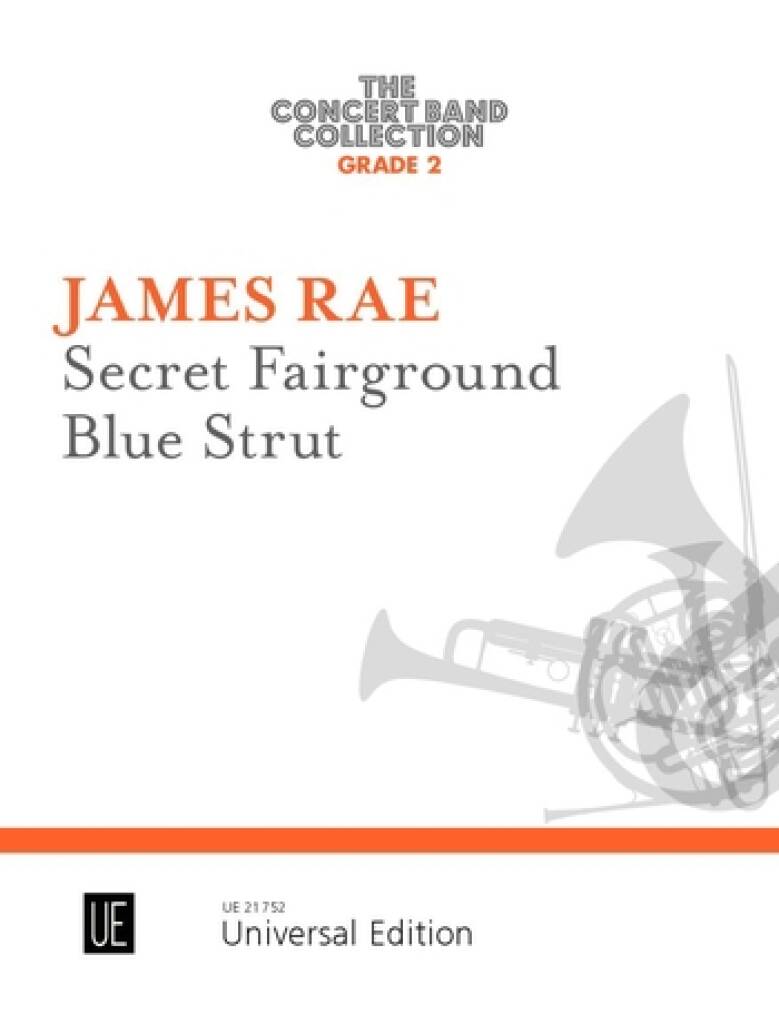 £47.50
£47.50Secret Fairground ? Blue Strut - James Rae
James Rae is the man who put fun into woodwind and brass teaching. His many compositions, especially in the jazz and blues idioms, have often featured on examination syllabuses. Recent years have seen his publications of easy flexible ensembles for younger players and now he turns his attention to the wind band. In his new series "The Concert Band Collection", he has written exciting new pieces for the standard concert band line up. Attention is given to each instrument so that the technical and musical requirements do not exceed UK Grade 2.5. An optional piano part will provide "stuffing" and moral support for the young players who will quickly enjoy James' catchy and imaginative music. Each volume contains two titles.Each volume features two titles. This one includes the haunting and nostalgic waltz "Secret Fairground" and a dynamic masterpiece called "Blue Strut". A score of this edition (without the parts) is available with the number UE21793.
Estimated dispatch 7-14 working days
-
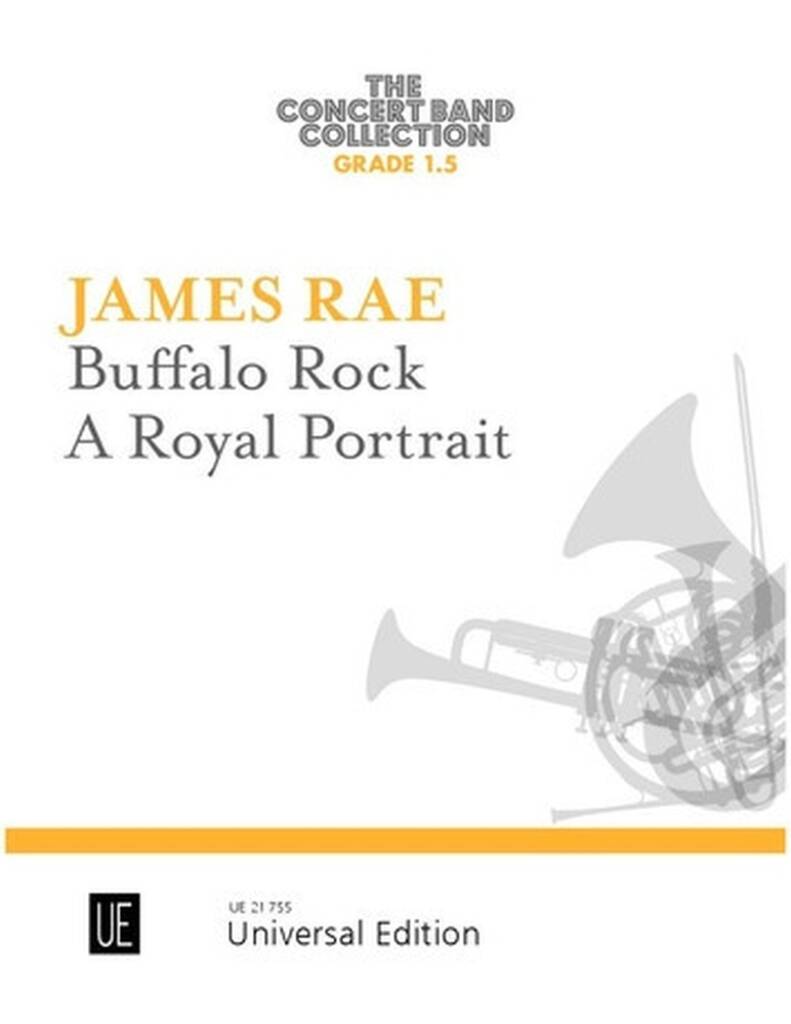 £49.99
£49.99Buffalo Rock - A Royal Portrait - James Rae
James Rae is the man who put fun into woodwind and brass teaching. His many compositions, especially in the jazz and blues idioms, have often featured on examination syllabuses. Recent years have seen his publications of easy flexible ensembles for younger players and now he turns his attention to the wind band. In his series The Concert Band Collection, he has written exciting new pieces for the standard concert band line up. Attention is given to each instrument so that the technical and musical requirements do not exceed UK Grade 2. An optional piano part will provide "stuffing" and moral support for the young players who will quickly enjoy James' catchy and imaginative music. Each volume contains two titles. Buffalo RockThis piece has been specifically composed for bands in their early stages of development. All instrumental parts have been written in comfortable keys and ranges with all clarinet parts staying entirely in the low register. After a short, powerful introduction, the music immediately kicks in to a driving rock mode, setting the scene for the remainder of the piece. Strong rhythmic playing is required from all sections of the band in order to achieve a solid performance. A Royal PortraitThis piece is very regal in style and portrays all the pomp and circumstance that surrounds a high-profile state occasion. It is to be performed with a full, warm sound and players must resist the temptation to overblow as this could have a detrimental effect on tone quality and intonation. As with Buffalo Rock, the instrumental parts have been written in comfortable keys and ranges with all clarinet parts staying entirely in the low register.
Estimated dispatch 7-14 working days
-
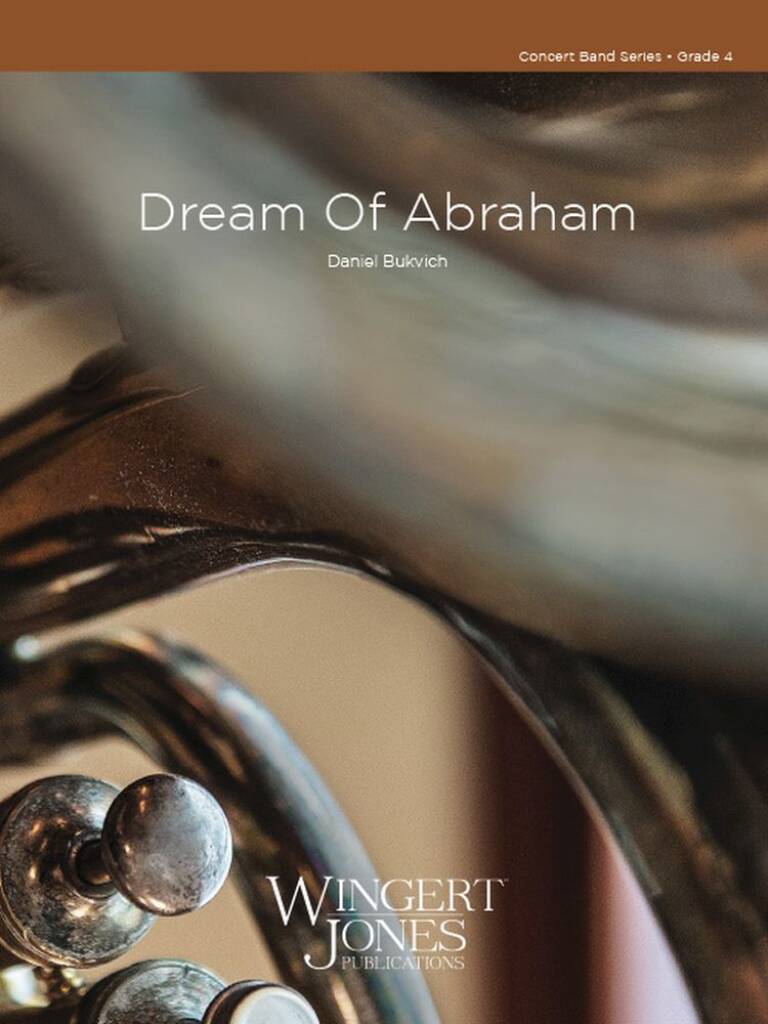 £104.50
£104.50Dream Of Abraham - Daniel Bukvich
The dream... always... whenever I sleep... the dream...shouts become whispers... Those are the words of Abraham Zapruder as he speaks of his own reaction to the film he made of the assassination of John F. Kennedy. This work incorporates the unique and creative writing style found in the Bukvich Symphony No. 1 in bringing us this chilling and haunting representation. A most remarkable work. (13 minutes 20 seconds)
Estimated dispatch 7-14 working days
-
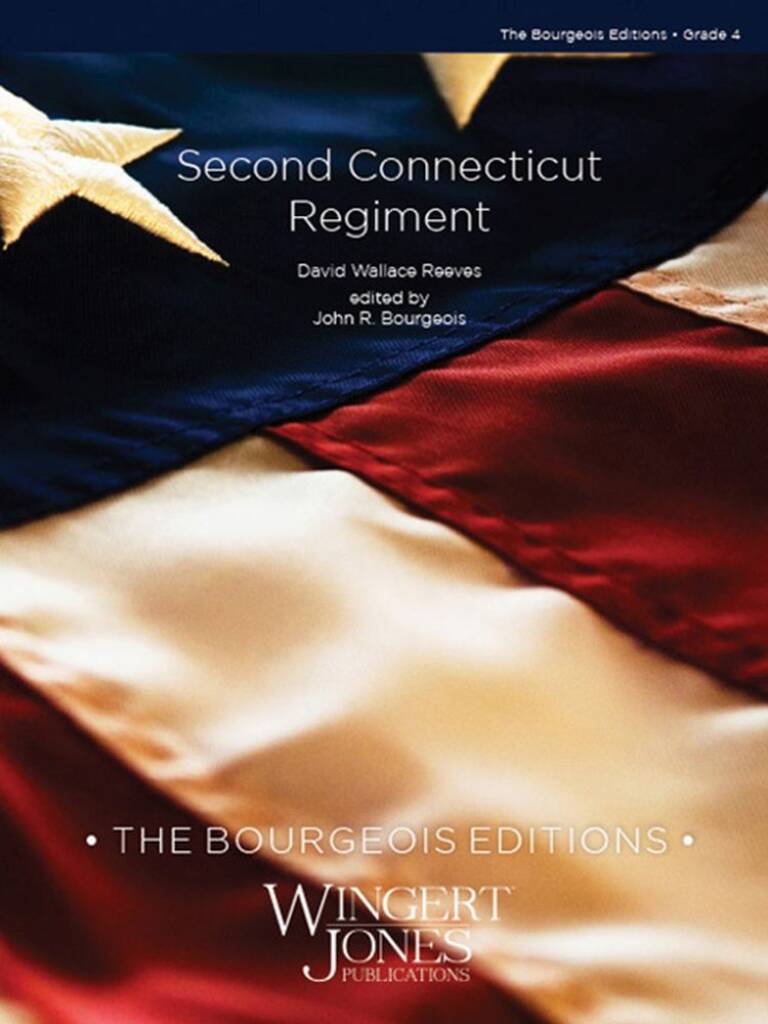 £104.50
£104.50Second Connecticut Regiment - D. D. Reeves
David W. Reeves (1838-1900) was a skilled cornet soloist and band leader. He was called the "Father of Band Music in the U.S.A." He wrote over 150 marches, galops and polkas. In 1981, The Second Connecticut Regiment was named one of the three "most worthy marches" by Col. William Santelmann, Director of the United States Marine Band. This new edition, by another former conductor of the Marine Band, brings the work up to the standards of his former bands library.
Estimated dispatch 7-14 working days
-
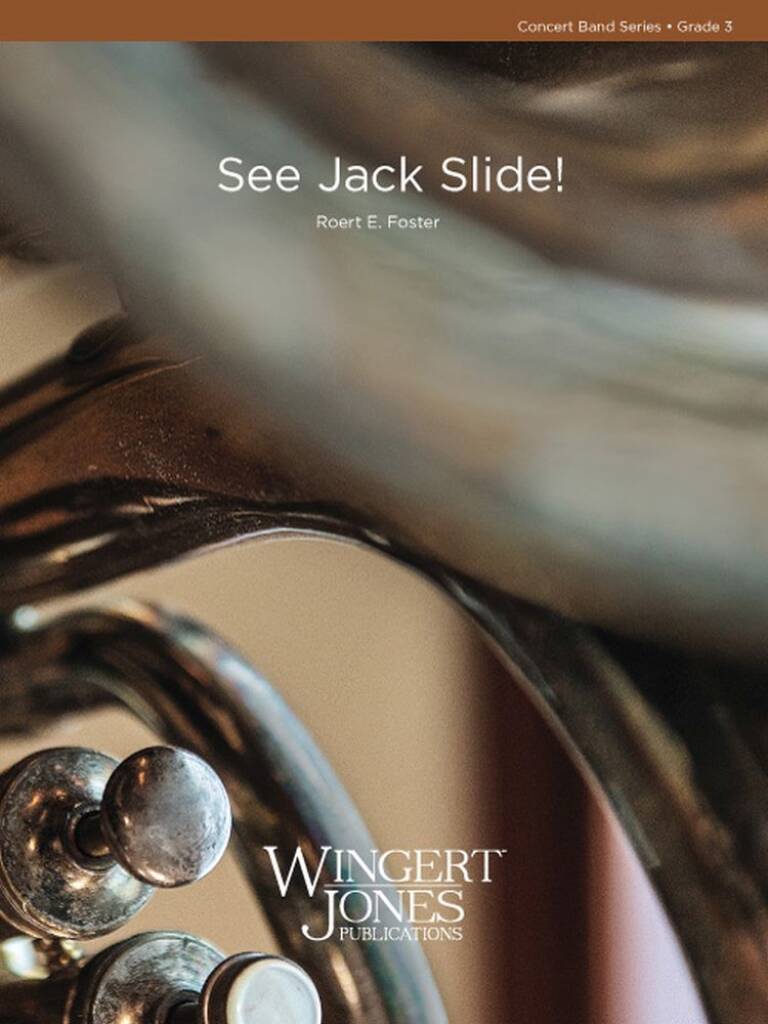 £82.50
£82.50See Jack Slide - Robert E. Foster
This original trombone feature, a "smear" for trombones, was written in memory of C. Jack McCurley, a young, energetic, fun-loving trombone player who lost his life in an accident. He was a member of his middle school band in Jefferson City, Missouri, and his fellow students and teachers commissioned this work as a memorial to him. But they wanted a happy piece because he was a happy person.
Estimated dispatch 7-14 working days
-
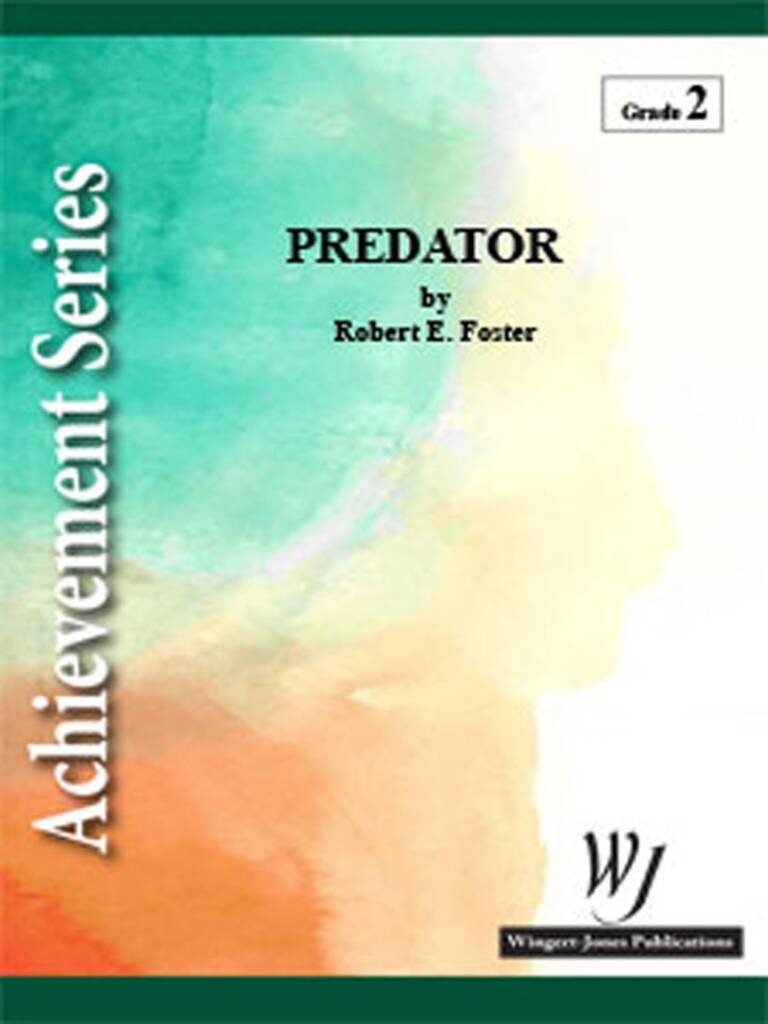 £71.50
£71.50Predator - Robert E. Foster
Predators are things that prey on others for their existence and come in a variety of forms, both real and imaginary. This predator is one of the scariest of all, that of the imaginary kind, and the music adds to its fearsome presence. The suspenseful sounds are dark and sinister, leading our imaginations to create a menacing image far scarier than any that exist in real life. The music evokes images of this fearsome creature as he prowls an imaginary landscape, striking fear into listeners as he searches for his next victim!
Estimated dispatch 7-14 working days
-
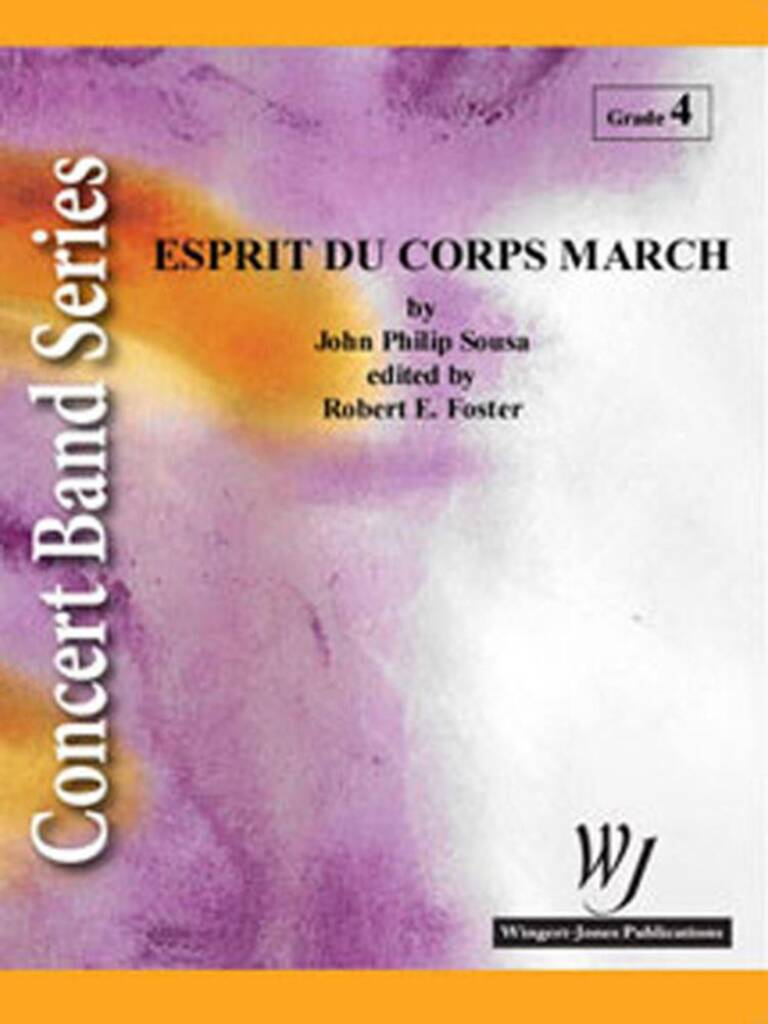 £104.50
£104.50Esprit Du Corps March - John Philip Sousa
Fans and march enthusiasts will be delighted with this wonderfully stylish rediscovered march. At the time this march was written, Sousa was living in Philadelphia and had not yet begun his Marine Band career - but he was an accomplished composer who already had 34 publications to his credit. However, the march was not published for band until after he left the Marine Band and formed his professional band. This march, listed as Opus 45, is a fitting tribute to the great talent of the young John Philip Sousa, and to the esprit de corps of bands everywhere.
Estimated dispatch 7-14 working days
-
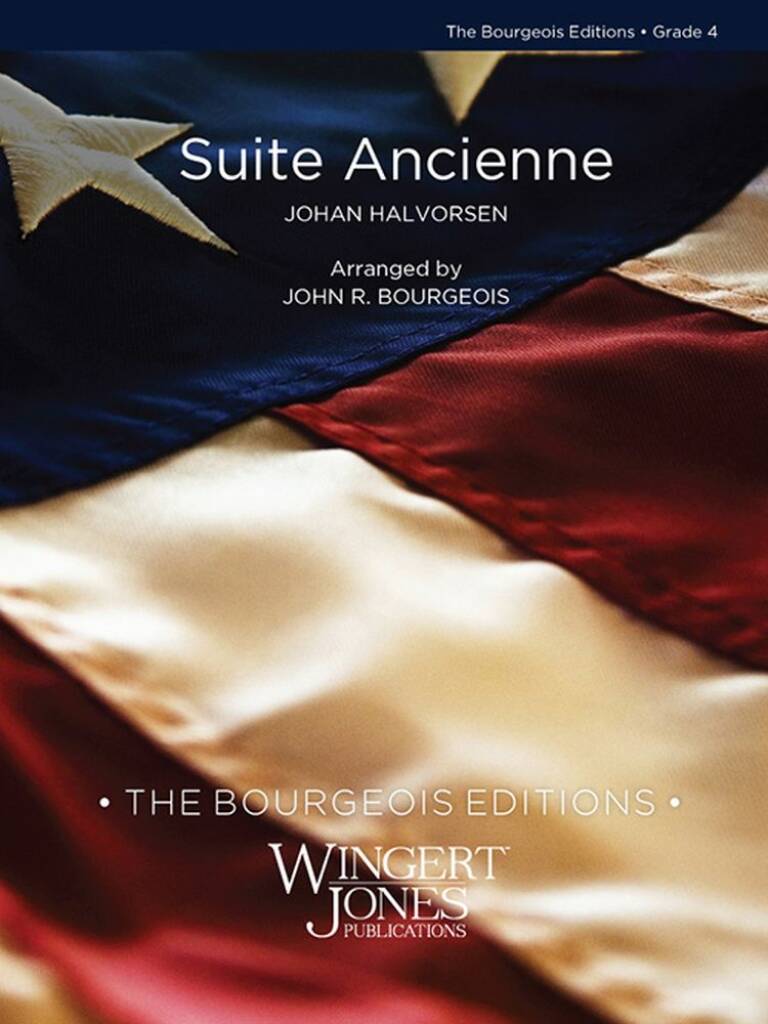 £104.50
£104.50Suite Ancienne - Johan Halvorsen
In 1911 Johan Halvorsen composed incidental music for a production of Ludvig Holbergs play "The Lying-in Room" and later arranged the music into his "Suite Ancienne Op. 31." The suite in five movements contains some of Halvorsens most descriptive musical output. In harmony and instrumentation, he bursts the bounds of his baroque canvas, imbuing his music with the unmistakable stamp of Neoclassicism. The five movements consists of: 1. Intrada, 2. Air con variations, 3. Gigue, 4. Sarabande, and 5. Bouree. The arranger, Colonel John Bourgeois, has also arranged Halvorsens In Memoriam, Op.30 and the four-movement "Little Masquerade Suite." He notes that the "Suite Ancienne" may be played as a complete entity or each of the movements may be performed individually.
Estimated dispatch 7-14 working days
